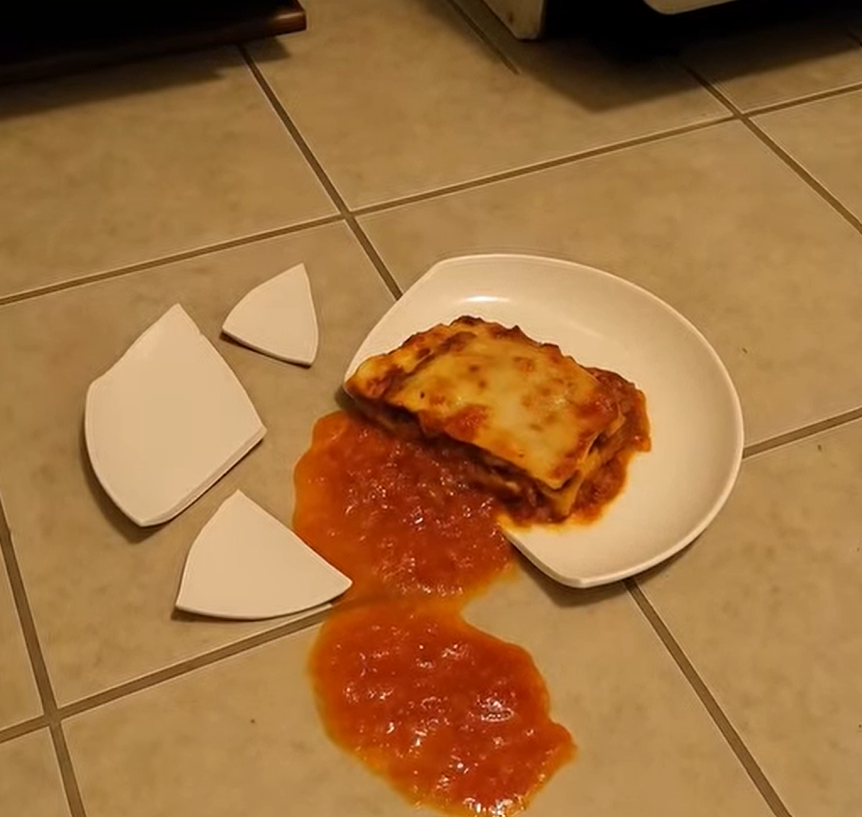After my dad died, my mom, Colleen, was a shell of herself—quiet, lonely, and moving through life like a ghost. They had shared a 32-year love story full of warmth, small rituals, and mutual respect. I worried from afar, calling daily, knowing phone calls couldn’t replace companionship. Then came Raymond, a charming coworker who brought her lunch and offered help around the house.
Soon he was making her laugh again. They married quickly, and I pushed aside my unease because she seemed happy again. But months later, during a visit, I saw the truth. Mom looked frail, pale, and worn down.
When she suggested reheating lasagna, Raymond exploded, calling leftovers an insult and declaring that “real wives cook fresh meals daily.” He threw the container to the floor while my mom apologized and cleaned up, trembling.
That night, I lay awake and made a decision. For the next few days, I cooked elaborate meals from scratch, earning Raymond’s endless praise. On the fourth day, I revealed that I had been serving variations of leftovers all along. His face fell, stunned that he had praised the very thing he claimed to despise. I told him my mother deserved respect, not demands.
That evening, I took her out to dinner and reminded her she had every right to peace. A week later, we packed Raymond’s things, changed the locks, and reclaimed her home. When he returned and found himself locked out, my mom told him calmly that it was over. Months later, she laughed again over the phone, saying she’d turned down his plea to come back—she was having lasagna again, and it tasted like freedom. Because entitlement destroys itself, and love, unlike obedience, must be earned.
